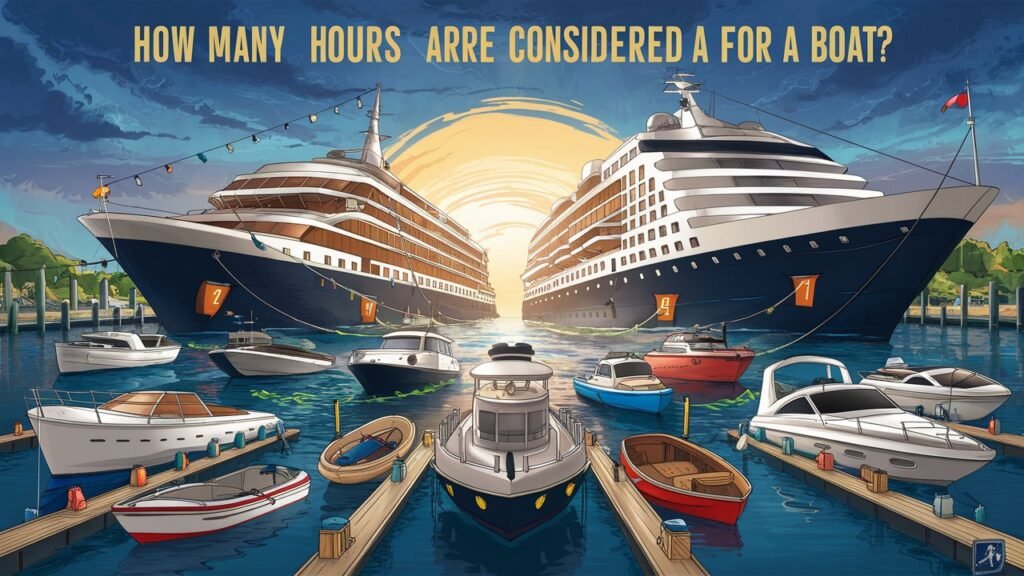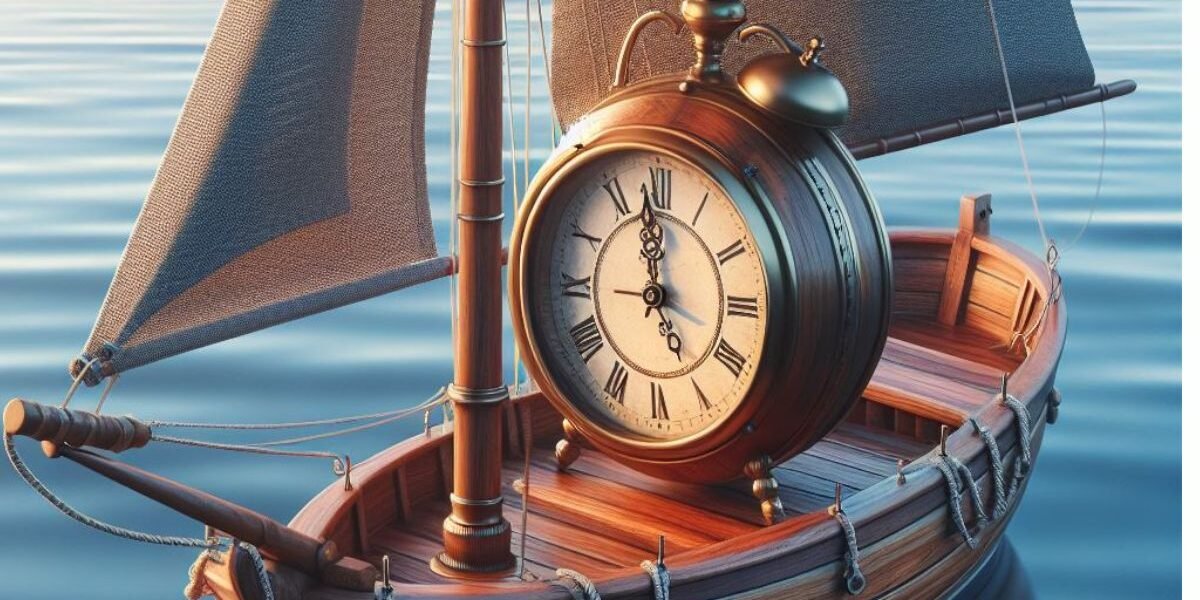How Many Hours Are Considered a Lot for a Boat?
Many hours are too many when considering a boat purchase can vary depending on the type of engine and how well-maintained it is.
It’s not uncommon to see boats with 2000 hours or more still running strong on diesel engines.
On the opposite end of the spectrum, outboard engines have a shorter life span and anything over 1000 hours is considered a lot.
Marine engines that are taken care of can last even longer, up to 2000 hours or more.
Boats used in saltwater may have shorter lives as saltwater can accelerate corrosion.
All things should be considered but engine hours versus overall boat use is important too.
For example, for an average boat owner using their boat regularly, 500 hours could be considered high especially if the boat is older.
If properly cared for Yamaha outboards are known for long life and many routinely get past the 1500 hour mark before needing a major overhaul.
Regular maintenance such as oil changes and impeller replacements can help the engine run smoothly for thousands of hours.
To increase the life of an engine, car sellers may say that oil should be changed after every 100 hours.
In the end, the number of hours that can be deemed a lot for a boat will hinge on its upkeep and utilization throughout the years.
What Are Considered High Hours on a Boat?

When you think about a boat’s hours, be sure to include both the amount of time it has been used and how it has been used.
“High hours” can mean different things for different boats and their engines.
For instance, 800 hours on an engine could be considered high for a yacht, while 750 hours may not impair an old boat which has been kept in good condition and is still running well.
If it’s always well taken care of then for most dealerships they will say that anything over one hundred is high on a diesel.
In general, 50 to 75 hours of usage per year is considered average, but it all depends on how the boat is maintained.
To avoid major repair or overhaul, it may be necessary to oil certain engines after every 50 hours of use.
Provided they are well maintained and used regularly, marine engines, particularly inboard ones have a higher annual running time.
When old oil is used to start up a boat which has been sitting idle for a number of years with low hours on it, then it might need major repairs or an overhaul.
On the other hand, were such a vessel to cover 50 miles each weekend throughout the year; its engine would remain strong even after four hundred hours of usage.
Hence it is important that one considers total mileage as well as general state of an engine before deciding whether the given number of hours per annum are low or high.
When looking to buy a boat, it is important to consider the boat hours and to make sure that the engine will run for time boat before needing any major repairs or overhaul.
Understanding the Number of Hours

Understanding the Number of Hours
Before starting a job for your personal time management, you should be aware of the hours that are supposed to be spent on it.
Knowing the time frame is important when it comes to doing anything whether at work or school or even just daily planning because you can’t manage what you don’t measure.
In order to prevent putting things off, setting rational goals and deadlines would help ensure timely completion of tasks.
It’s important to take into account also breaks and intervals while calculating the hours required by an activity.
As an illustration, if a task takes around 50-75 hours to finish then one should consider having frequent pauses so as not get tired easily thus maintaining high levels of productivity throughout.
Further still, it has been proven that taking care of your physical health too affects productivity in general such as changing air filters for instance.
If however there is any problem with estimating how long something will take please turn on Javascript in your browser first before proceeding with this step.
By doing this, you will be able to insert time easily and calculate for each step which keeps on toes ensuring all deadlines are met.
Determining High Hours for Different Types of Engines

Determining High Hours for Different Types of Engines
When it comes to determining which hours are considered high for different sorts of engines, there are several things that should be kept in mind.
In the first place,
the sort of an engine itself plays a major role in deciding what can be viewed as high hours.
To illustrate, the small gasoline engine used in lawnmowers will have much lower requirements in terms of time compared with large diesel engines installed on commercial trucks.
Secondly,
utilization patterns and service history cannot be ignored when trying to establish which hour marks are high or low.
It is true that regular maintenance done frequently along with proper care can significantly prolong life cycle of an engine; however, if neglected and serviced improperly such actions may cause rapid deterioration and eventual breakdown of an engine system.
Finally,
one should refer back to manufacturer’s recommendations manual or other relevant documents provided by them while attempting to establish what should be regarded as high mileage for a given type of engines model.
How to Evaluate Engine Hours on a Used Boat?

To ascertain the general state as well as possible future durability of a used boat, the number of hours its engine has been operating should be evaluated.
One way to evaluate engine hours is by looking at the hour meter on the boat which records the time when the engine was running.
It should be noted that hour meters can be interfered with or reset so they do not always show the correct usage of an engine.
Another option to evaluate engine hours is to review maintenance records or logbooks for this information about boats’ engines.
This will tell you how often and when major repairs were done on different parts of the engines among other things like frequency of servicing etcetera…
Moreover, getting services from marine surveyors who will inspect both boats and their engines could give one a better idea about its overall condition and life expectancy.
In conclusion; sometimes all three methods may be needed such that one may tell whether used boats’ advertised numbers are true by use any combination thereof.
Checking the Engine Hour Meter
It is important to check the Engine Hour Meter for every vehicle owner or machinery operator
This meter shows how many hours the engine has been running and allows you to know when maintenance needs to be done or if there are any problems that might arise soon.
By frequently checking the Engine Hour Meter, one can ensure that his/her engine is working well and also avoid expensive repairs in future.
If an individual observes abnormal readings on this device, it could mean that something is not right with his/her engine hence they should seek immediate help from a qualified mechanic.
Always remember that when dealing with car care ‘prevention is better than cure’.
Determining Engine Life Expectancy Based on Hours

Service records are crucial in determining the life expectancy of an engine based on its operating hours.
By keeping detailed service records, owners and operators can track maintenance schedules, repairs, and replacements performed on the engine throughout its lifetime.
The data is helpful in determining what the condition of an engine is and how healthy it may be. This allows for better forecasting its remaining useful life (RUL).
If one does not have these records, it can be difficult to guess when their engine might fail or break down.
In situations where there are no service records because they were erased by mistake, weren’t saved properly, or never existed at all due to being counterfeit etc.,
then an alternative approach will need to be taken into account which involves looking for other signs like checking with eyes performance indicators and asking professionals about estimated lifespan on average engines live according them?
What Are the Factors That Determine If Engine Hours Are Too Many?
The engine hours indicates the number of hours that an engine has been used.
Whether or not the motor hours are excessive depends on different considerations.
One of these is the kind of motor because some types of motors are built to last and operate for more hours than others.
Another one is the maintenance level accorded to a given engine.
Regular and correct maintenance can help in extending the life cycle of an engine as well as making it run efficiently over a long period.
Environmental conditions also determine this; engines operating under extreme conditions like high temperature or dusty environment may wear out faster due to increased friction between moving parts caused by lack of enough lubrication oil film which is necessary for preventing metal-to-metal contact between such components thus reducing wear rate considerably thereby increasing lifespan significantly instead.
Finally, age could be another factor affecting this where old ages engines will have higher chances than newer models when they need replacement or overhaul after running certain number of hours without break downs
occurring frequently which increases their reliability levels considerably beyond what might have been achieved if they were still new since frequent breakdowns would result in more failures leading less confidence being placed upon them by users thereby necessitating urgent action taken towards replacement or repair depending on
circumstances surrounding each case individually considered on its own merits before making any decision regarding further use thereof under similar conditions elsewhere so that there are no surprises later on.
Effects of High Hours on Engine Wear and Tear
High hours of operation can significantly increase engine wear and tear over time.
The constant running of an engine puts it under immense stress, causing components to wear down faster than usual.
Problems like scuffed pistons, cylinder wall wear and valve train problems can come about from this.
On top of that, too many hours on the engine can cause the oil to not circulate as much which then leads to not enough lubrication being provided for important parts of the engine.
When there isn’t any lubrication available, it produces more friction and heat which in turn speeds up wearing out.
It is necessary to do regular maintenance and watch the number of hours put on an engine so as not to allow too much deterioration and also increase its lifespan.
conclusion
To sum up, the upper limit for hours of a boat engine being classified as high depends on many factors such as kind of motor, maintenance record and surroundings.
Concerning diesel engines, anything between 5,000 to 10,000 hours may be said to be high; whereas for outboard motors this could be around 1,000 hours. Boats ought to have regular check-up done on them after specific intervals which involve replacement filters and inspection services among others like oil change.
It is also important that one uses fuel and lubricants of good quality in addition to correct storage methods plus winterization so as not to cause premature wearing out as well as ensuring best performance levels are achieved always.
Following these steps will enable boat owners keep their high-hour engines running smoothly for many years while still providing dependable service throughout the waters.





Is it possible for a boat engine to have more hours on it than indicated, due to tampering or resetting of the hour meter? How can buyers protect themselves from purchasing a boat with a potentially worn-out engine?”,
“refusal